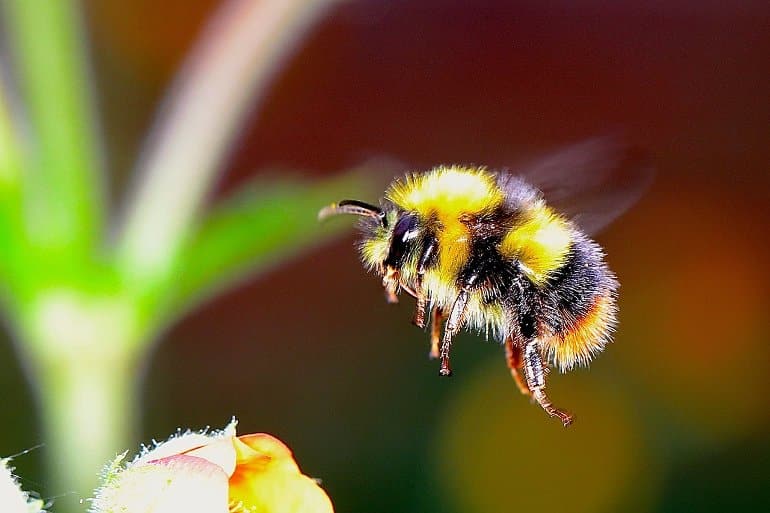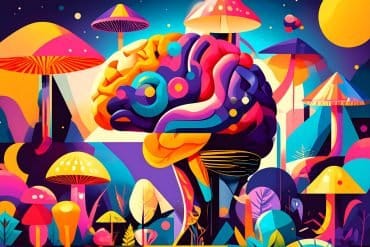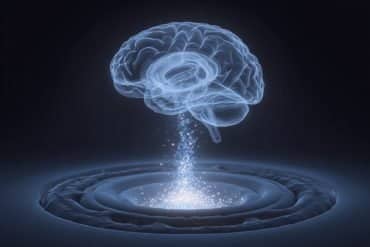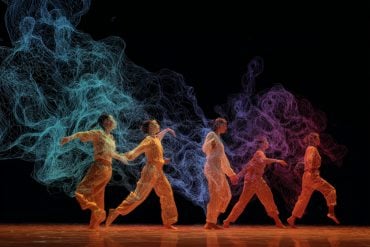Summary: Bumble bees don’t retain memories of how sweet a flower is, they only remember if one flower was sweeter than another.
Source: Queen Mary University London
Bumblebees don’t seem to keep memories for how sweet a flower was, but instead only remember if it was sweeter than another flower, according to researchers at Queen Mary University of London, along with an international team of scientists.
In new research in the journal eLife, bumblebees were first trained on two flowers, learning that one flower was sweeter than a second flower.
Later, they learned that a third flower was sweeter than a fourth flower. Then bumblebees were given the choice between two of the flowers they hadn’t seen together before, for example the second and third or the first and third.
Over a series of experiments, bumblebees’ preferences during the tests indicated that they could only retain very basic ranking memories for the flowers for very long. The bumblebees could only remember that a flower had been better or worse during training phase. Bees couldn’t seem to remember for more than a few minutes how sweet or rewarding the flowers were on their own or even how much sweeter they were compared to other flowers.
Previous research shows that we humans actually keep memories for both absolute information (e.g. how sweet something is) and comparisons [Palminteri and Lebreton, 2021]. Starlings, a bird native to Europe, and the only other animal for which this question has been examined, similarly use a combination of absolute and comparative information when remembering options [Pompilio and Kacelnik, 2010].

Ms Yonghe Zhou, co-lead author on the paper and currently a PhD student at Queen Mary University of London, says: “Our results reveal an intriguing divergent mechanism for how bumblebees retain and use information about options, compared to humans and birds.”
Prof Fei Peng, senior author currently at Southern Medical University, China, states “It may be that the different strategies used by bumblebees and humans may have evolved because of their different diets. Maybe because bumblebees evolved to mostly only eat flower nectar, they never needed to remember the details and could survive and thrive simply using simple comparisons.”
Ms Yonghe adds: “Despite what may seem to be a poor memory strategy, bumblebees do very well in finding the most profitable flowers. It’s fascinating to consider how different animals, in their own ecological niche, can be similarly successful using such different strategies.”
About this memory research news
Author: Melissa Bradshaw
Source: Queen Mary University London
Contact: Melissa Bradshaw – Queen Mary University London
Image: The image is in the public domain
Original Research: Open access.
“Bumblebees retrieve only the ordinal ranking of foraging options when comparing memories obtained in distinct settings” by Cwyn Solvi et al. eLife
Abstract
Bumblebees retrieve only the ordinal ranking of foraging options when comparing memories obtained in distinct settings
Are animals’ preferences determined by absolute memories for options (e.g. reward sizes) or by their remembered ranking (better/worse)?
The only studies examining this question suggest humans and starlings utilise memories for both absolute and relative information.
We show that bumblebees’ learned preferences are based only on memories of ordinal comparisons.
A series of experiments showed that after learning to discriminate pairs of different flowers by sucrose concentration, bumblebees preferred flowers (in novel pairings) with (1) higher ranking over equal absolute reward, (2) higher ranking over higher absolute reward, and (3) identical qualitative ranking but different quantitative ranking equally. Bumblebees used absolute information in order to rank different flowers.
However, additional experiments revealed that, even when ranking information was absent (i.e. bees learned one flower at a time), memories for absolute information were lost or could no longer be retrieved after at most 1 hr.
Our results illuminate a divergent mechanism for bees (compared to starlings and humans) of learned preferences that may have arisen from different adaptations to their natural environment.






